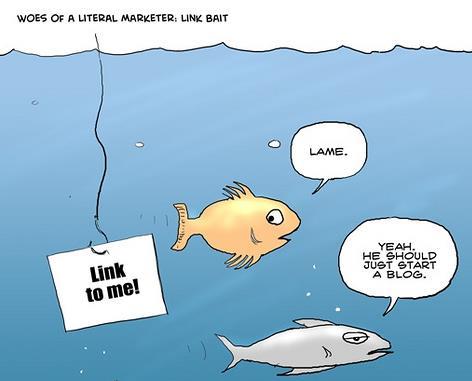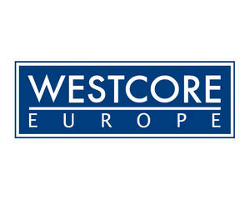There's something about a career in real estate that calls to many people, especially those considering a career change. Real estate is a good option for anyone thinking about shifting careers because a license can be obtained relatively quickly and easily, and without any major financial investment. When one compares this to pursuing a full college degree, a career in real estate seems like a much easier option.

A new career in real estate awaits! © buchachon ' Fotolia.com
In general, it is not all that hard to get a real estate license. There is some coursework to complete, and a state licensing exam to pass. You may also need to make some connections within the real estate community. Read through the following steps to see just how easy it can be to become a licensed real estate agent.
Education
Before setting off down the path toward a career in real estate, you will need to first enroll in an educational course. These classes can be taken in person, at a local college or real estate office, or they can be taken online. The amount of coursework you need to take depends on the licensing requirements of your state. Before getting started, do some research into your state's requirements to make sure the course you attend is sufficient to qualify you for the license.
There are a few advantages in choosing to take a course in person. For one, the learning environment will be more personal, and you can learn more from the questions of others in the class. Also, you can talk directly to your teacher. Along the way, you may find yourself making some useful connections with those already in the real estate business. Those connections can help down the road when it comes to looking for a job.
On the downside though, attending classes can be problematic because the schedule can be fairly rigid ' you will be required to attend at the same time each and every week. Some may appreciate this more traditional learning environment, but others may have trouble getting their classes to fit into their already busy schedules.
If you opt for online classes, there will be no trouble on the scheduling front. You can do the work whenever you want, from wherever you want. That freedom is appealing to a lot of people, and works great for those that have full-time jobs already. Also, if you are in a hurry to obtain your license, online classes allow you to proceed at your own pace. If you are willing to work hard, the education requirement can be fulfilled in a matter of weeks.
Exam
After completing your coursework, you can fill out an application to take the state real estate licensing exam. The exam will test your knowledge of real estate rules and laws, and your classes should have provided you with all the information you will need. By being committed to your coursework and putting in the appropriate hours studying, the exam should not be a big hurdle towards getting your license.

Obtaining a real estate license doesn't have to be difficult © iQoncept ' Fotolia.com
One aspect of passing the exam that applies in some states is being sponsored by a currently licensed agent. If this is a requirement in your state, it might be smart to take your courses in person so you will have the opportunity to network with local agents who could sponsor you for the exam.
Overall, the process of getting a real estate license is not hard. The keys to success in this pursuit are good old preparation and hard work. None of the individual steps are particularly challenging as long as you remain focused on the goal. The bottom line is that if you are motivated to become a real estate agent, the licensing process will not stand in your way.
About the Author: Shannon Durr is a former real estate professional with over 13 years of experience. She current writes at charlesbarnes.com as well as other sites. She has taught many real estate classes and is committed to offering sound, real life advice. When she is not writing, she loves to be outdoors and travel with her husband and 3 beautiful girls. Follow her on twitter @ShannonDurr1



 In a release from the National Association or Realtors, November demand in the Northeast and West has apparently driven home sales for the month to the highest level in almost three years. Pending home sales grew by 1.7 percent during the month, up almost 10 percent over the previous year numbers.
In a release from the National Association or Realtors, November demand in the Northeast and West has apparently driven home sales for the month to the highest level in almost three years. Pending home sales grew by 1.7 percent during the month, up almost 10 percent over the previous year numbers.



 Property business in Bali is expected to present promising opportunities in 2013, the Bali chapter of Real Estate Indonesia predicting an overall 15% growth fueled by island's positive economic growth estimated for the next year. According to the chapter's chairman, Dewa Putu Selawa, business in the property field was expected to grow and reach a record growth in 2013 compared to previous years.
Property business in Bali is expected to present promising opportunities in 2013, the Bali chapter of Real Estate Indonesia predicting an overall 15% growth fueled by island's positive economic growth estimated for the next year. According to the chapter's chairman, Dewa Putu Selawa, business in the property field was expected to grow and reach a record growth in 2013 compared to previous years. Young adults in the UK are often referred to in the newspapers as being 'Generation Rent' due to the difficulties they face in trying to get onto the property ladder. A report by the Institute for Public Policy (IPPR) has shown problems with affordability have indeed created a generation of renters.
Young adults in the UK are often referred to in the newspapers as being 'Generation Rent' due to the difficulties they face in trying to get onto the property ladder. A report by the Institute for Public Policy (IPPR) has shown problems with affordability have indeed created a generation of renters.

 Real estate investment adviser and speaker Ted Thomas has just released a new webinar on his website to help people become educated about the different types of investments in mortgage-free real estate that are available to them. Ted Thomson taps into his over 25 years of industry expertise to teach the free webinar and educate the public about investing in this market. The top investment speaker has previously authored more than 30 books on the topic of mortgage-free real estate, exploring the investing strategies employed by successful real estate agents when buying properties at discounted sale prices.
Real estate investment adviser and speaker Ted Thomas has just released a new webinar on his website to help people become educated about the different types of investments in mortgage-free real estate that are available to them. Ted Thomson taps into his over 25 years of industry expertise to teach the free webinar and educate the public about investing in this market. The top investment speaker has previously authored more than 30 books on the topic of mortgage-free real estate, exploring the investing strategies employed by successful real estate agents when buying properties at discounted sale prices.








 San Diego based Westcore Properties has recently closed a deal to acquire a collection of Sacramento's industrial real estate. The purchase, valued at $600 million, includes 110 buildings amounting to 11 million square feet of space, a property portfolio put together by local developer Joe Benvenuti. Most of the buildings, about 8 million square feet, are located in Sacramento, the rest are commercial properties in the Midwest.
San Diego based Westcore Properties has recently closed a deal to acquire a collection of Sacramento's industrial real estate. The purchase, valued at $600 million, includes 110 buildings amounting to 11 million square feet of space, a property portfolio put together by local developer Joe Benvenuti. Most of the buildings, about 8 million square feet, are located in Sacramento, the rest are commercial properties in the Midwest.
 Reggie Higgins Hunt, a sales associate with Long & Foster Real Estate Inc., has been named Top Producer for November for the Devon office located at 92 Lancaster Avenue, Philadelphia.
Reggie Higgins Hunt, a sales associate with Long & Foster Real Estate Inc., has been named Top Producer for November for the Devon office located at 92 Lancaster Avenue, Philadelphia.
